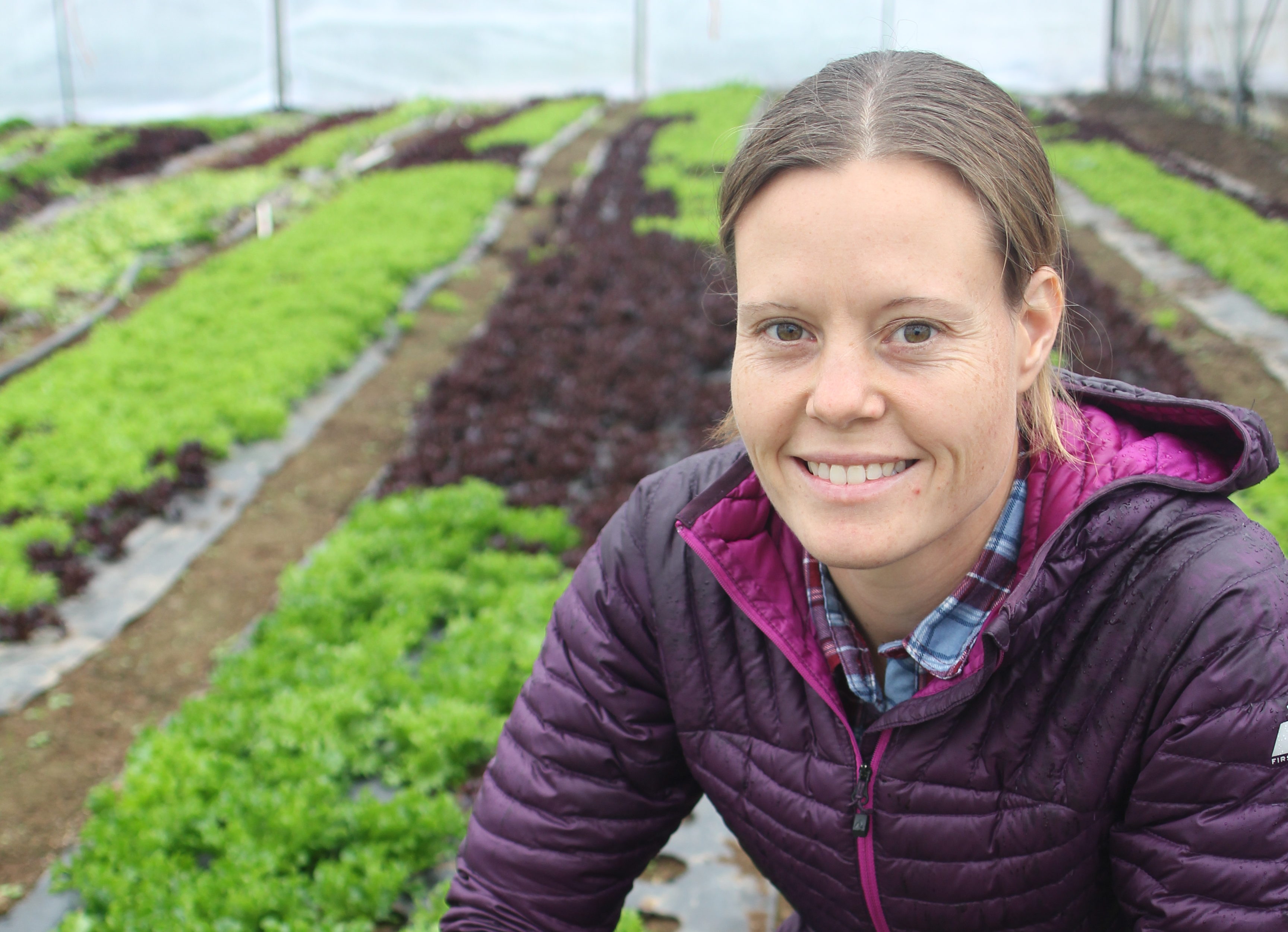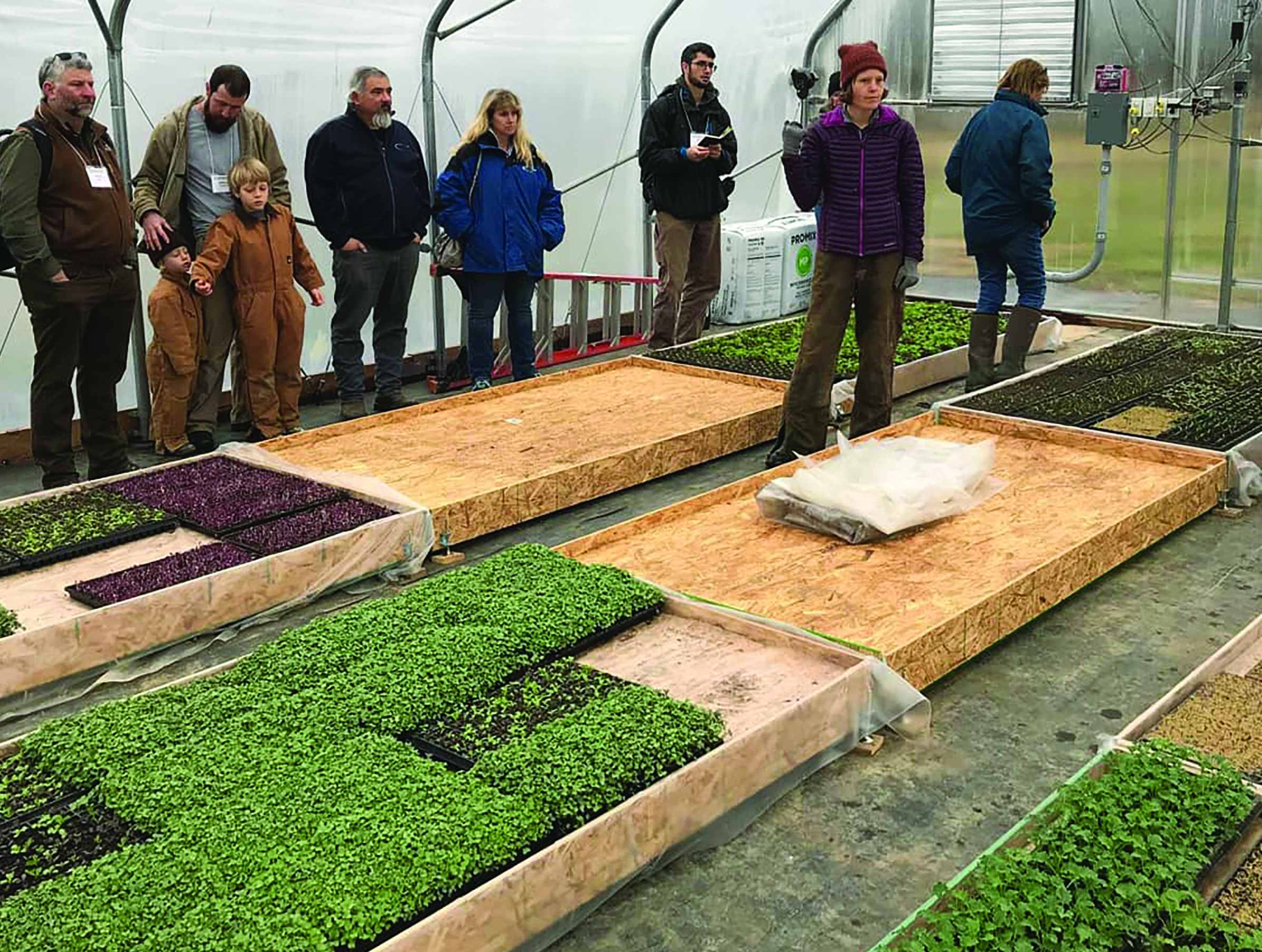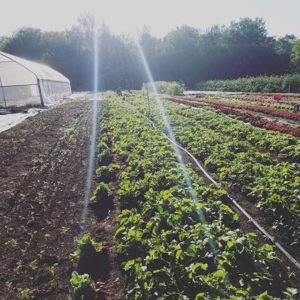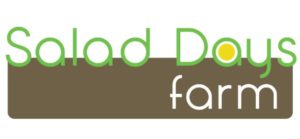
Jan 21, 2020
Salad Days Farms finds customer needs, trims waste
Increasing value and reducing overproduction are goals for all vegetable growers but they’re even more important for small producers. For Salad Days Farm at Versailles, Kentucky, that means identifying new customers – wholesale, food service, restaurant, farmers’ market – and matching production to their needs.
“A lot of the time I start the conversation with ‘What are you looking for?’ and then it’s ‘This is what I’ve got’,” said Maggie Dungan, the owner of Salad Days. “It’s easier to grow what they want rather than grow something and try to sell it to them.” The target is a “lean” operation where value is created and waste is eliminated.
Salad Days is a small operation but it’s certified organic and certified for Good Agricultural Practices (GAP).
The organic certification adds value. “It’s definitely important for my farmers’ market customers,” Dungan said. “They recognize what organic means and are willing to seek it out and pay for it.”
Organic is less of an advantage when selling to wholesalers and restaurants. “I think it helps to be organic,” Dungan said. “It’s a reassurance to customers. If two growers are offering a product at the same price, I’d hope they’d pick organic.”

The GAP certification adds value and is required when selling to the University of Kentucky Food Service, schools and other institutions. Many wholesalers and grocery stores also require it.
Access to the University of Kentucky Food Service came from working with Local Food Connection, a regional, food marketing organization that serves Kentucky, southern Indiana and southern Ohio. The organization connects farmers to a network of wholesale and retail buyers.
Local Food Connection does the marketing, finds new customers and handles ordering and invoicing. “I just grow the food,” Dungan said. About one-third of Salad Days’ production goes to Local Food Connection.
Marketing through Local Food Connection helps level the workload throughout the year – another lean concept.
Salad Days supplies the University of Kentucky Food Service 12 months out of the year. Even when some production is lost to weather, the foodservice needs are met with root crops and other vegetables in storage.
“People do ask, ‘When does your season end?’ I say it never ends,” Dungan said. “It’s the way to level the workload and keep your people employed year-round.”
Salad Days also sells to some caterers and restaurants. “I just reached out to the chefs and gave them some samples,” Dungan said. “It’s developing that relationship with them.”
The caterers and restaurants like individual attention. “They think, ‘Wow, they’re growing this for me’,” Dungan said. “I have people who order every week and that’s good.”

About half of Salad Days’ production is sold at farmers’ markets. Salad Days sells in the Lexington, Kentucky, farmers’ market and in the Franklin County farmers’ market in nearby Frankfort.
“One of the hardest parts is learning what people want,” Dungan said. “Even Frankfort and Lexington – they’re right next to each other – are surprisingly different. One wants red radishes, the other wants French breakfast radishes. Some farmer’s markets want more adventuresome produce and others want the standard crops.”
Salad Days has three high tunnels and a small, heated greenhouse. The operation grows a variety of vegetables – including mixed greens, root crops, tomatoes, peppers, cucumbers, squash and a few Asian greens, but baby lettuce for salads is the main crop.
A lean farm minimizes overproduction and the associated waste.
“I just try to estimate,” Dungan said. “You always want to overplant because of losses to pests or diseases.” Excess production may go to Local Food Connection or may even be donated to the local food bank.
Lean production also means having the most efficient work processes. “What do we need to do to get to the end goal? What do we need to do to be better or quicker?” Dungan asked. “I really look at the procedure and the steps. To me, it’s being really critical of how you spend your time and what steps you’re doing.”
Tracking flow on the farm is a key step to process improvement. Where do the workers spend their time between harvesting root crops and getting them into storage? Will washing the root crops in the field save end-of-the-day, clean up time in the sorting shed?
Goals are important. If employees know how much lettuce they should pick in 10 minutes, they know when they need to speed up or when they’re encountering barriers to efficiency.

Moving the high tunnels is a key to maximizing production and profit without increasing fixed costs.
Starting winter greens outdoors in the fall lets tomatoes be grown an extra month inside a high tunnel. When the tomatoes are done, the high tunnel is moved to be over the winter greens.
In the spring, the high tunnel is moved off the winter greens because they can take some cold or a light frost. Warm-season crops like tomatoes and cucumbers are then started in the high tunnel.
Salad Days has one part-time and two full-time employees and they provide indispensable input. They will be the first to find aphids or other pests as long as they’re taught what to look for. Making your employees more valuable to your farm is as important as increasing the value of your production.
“It’s hard work and keeping employees can be an issue on some farms, but I’ve been very fortunate,” Dungan said. “My employees like working here; they like working on a farm.”
Cover crops have worked out especially well for improving soil health and creating a good ecosystem. “We have a lot of clay soil here,” Dungan said. “People ask, ‘How do you grow carrots?’ I tell them I just take care of the soil.”
“It’s so small the acreage I’m using – I grow on less than four acres,” Dungan said. “But we sell at more places than farmers’ markets. I like it that we have niche markets, and sell to local restaurants, wholesalers and universities. I like to know I can compete with the bigger farms. I like to think taking care of the soil, growing what people want, and growing quality food will make the difference.”









